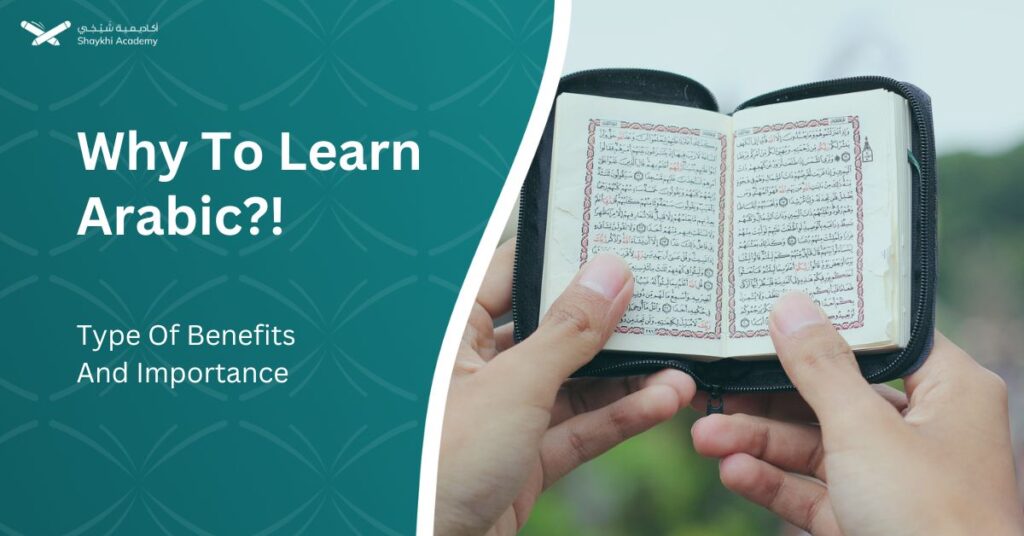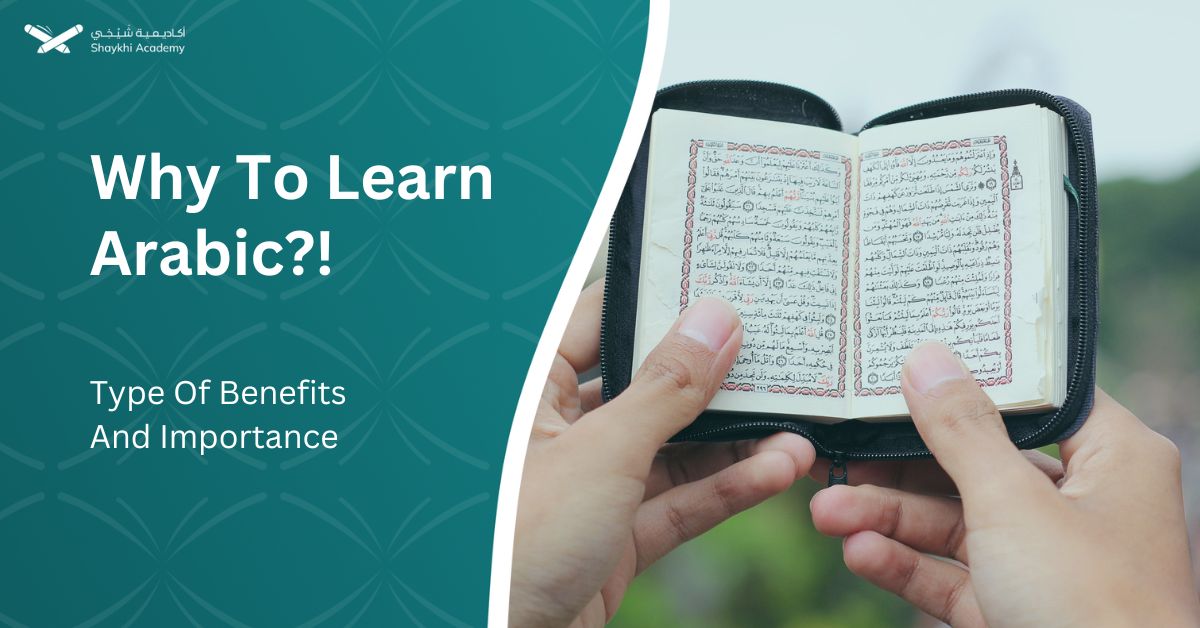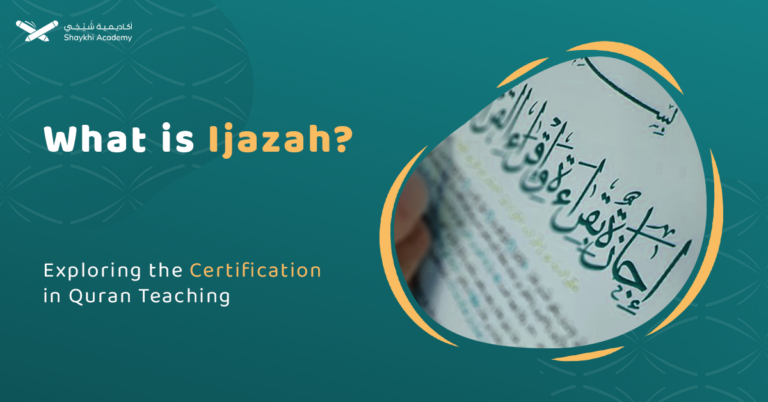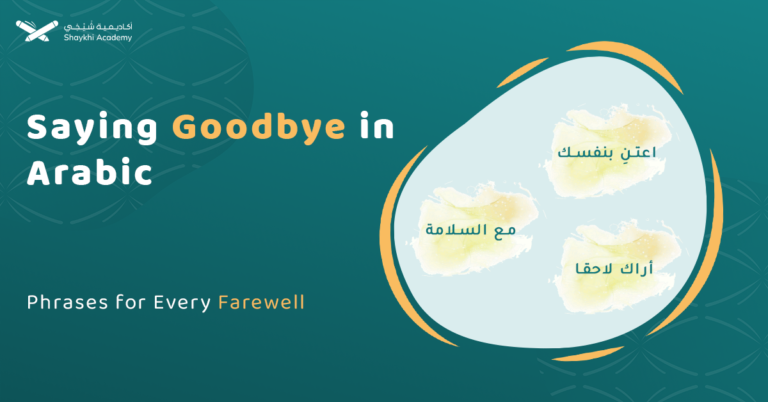Benefits Of Learning Arabic: Arabic holds a position of profound significance, intricately woven into the fabric of religious practices and cultural richness. Umar Ibn Al-Khattab encapsulated the essence of this connection when he urged, “Learn Arabic for it strengthens the mind and enhances chivalry.” This underscores the crux of our exploration into why learning Arabic is not merely an academic pursuit but a spiritual journey that unfolds on both individual and communal levels.

What are the benefits of learning Arabic?
At the core of this exploration is the duality of purpose that underscores the imperative for Muslims to learn Arabic. On an individual level, it becomes a pathway to fulfilling religious obligations, from the recitation of prayers to a profound engagement with the Quran and Sunnah.
1. Fulfilling Religious Obligations
Learning Arabic is essential for Muslims as it facilitates the fulfillment of religious duties on both individual and communal levels. Individually, mastering Arabic enables Muslims to recite prayers accurately and engage profoundly with the Quran and Sunnah. This linguistic proficiency allows for a deeper understanding of religious texts and enhances spiritual connection with Allah.
Moreover, on a communal scale, the obligation to teach and learn Arabic transcends individual responsibilities, forming a collective effort to preserve the essence of Islam. By embracing Arabic, Muslims ensure the preservation of religious teachings and uphold the higher objectives of their faith.
2. Pathway to Spiritual Engagement
Arabic serves as the chosen language for divine revelation, making it indispensable for Muslims seeking spiritual enlightenment. Through the study of Arabic, individuals gain access to the original words of the Quran and Hadith, unlocking profound insights into Islamic teachings.
This linguistic journey not only enriches one’s understanding of religious texts but also fosters a deeper connection with Allah and His Messenger. By immersing oneself in Arabic language and literature, Muslims embark on a transformative journey of spiritual growth and enlightenment.
3. Preserving the Islamic Heritage
The importance of learning Arabic extends beyond individual spiritual growth to the preservation of Islamic heritage and culture. Arabic is not merely a language but a symbol of the rich legacy and heritage of Islam. By embracing Arabic, Muslims contribute to the preservation of their cultural identity and heritage, ensuring that future generations continue to uphold the values and teachings of Islam.
Moreover, the study of Arabic fosters a sense of unity and solidarity among Muslims worldwide, transcending linguistic and cultural barriers to foster a global Muslim community united in faith and knowledge.
4. Shaping Minds and Hearts
Learning Arabic is not just a linguistic endeavor but an odyssey that shapes minds, hearts, and the very fabric of the Muslim community. It instills discipline, critical thinking, and a profound sense of devotion to Islam. By mastering Arabic, Muslims gain access to a vast repository of knowledge and wisdom, enabling them to navigate life’s challenges with faith and resilience.
Moreover, Arabic language and literature inspire creativity, poetry, and art, enriching the cultural landscape of the Muslim world and beyond. Ultimately, the journey of learning Arabic is a transformative experience that empowers individuals and communities to embody the principles of Islam in their daily lives.
5. Deep understanding of the Quran and Sunnah and related Islamic books:
Reading these sacred texts in their original language fosters a more nuanced and accurate understanding of their message. Increase of the Muslim identity in the generations, especially non-native Arabic speakers.
5. Great effect on the mind and character:
Ibn Taymiyyah said: “Habituation of the language evidently affects the mind, character and religion. It also affects the resemblance of the early generations of this nation of companions and followers, which increases the mind, religion and character.
6. Keeping the religion of the Muslim and strengthening connection with Allah:
Reciting prayers and supplications in Arabic allows for a more direct and personal connection with the Divine. Better communication with other Muslims all over the world, and an opportunity for good company.
7. Enhanced Analytical Skills:
The complexity of Arabic grammar and syntax enhances cognitive abilities, contributing to improved analytical thinking.
Why Do We Have To Learn Arabic On The Individual Level?
Learning Arabic is important for Muslims because all Muslims have to acquire the minimum level of Arabic to perform the prescribed recitation and supplications in the five obligatory prayers.
Above this level of keeping prayers, the Muslim should learn Arabic to deepen his understanding of the Quran and the Sunnah, to improve his worship, and to become closer to Allah Almighty.
Why Do We Have To Learn Arabic On The Community Level?
As for the whole Muslim community, they collectively have to teach and learn Arabic because:
1. A collective duty
Learning Arabic is a collective duty to teach and learn Arabic and to keep the higher objectives of the religion revealed in Arabic. The collective duty [fard kifayah] here means that the Muslim community is obliged to provide an adequate number of Arabic learners and scholars to meet the needs in this field. Rather, all the community will be sinned if this adequate number isn’t reached.
2. Preserve the Quran and Sunnah
Muslims are asked to preserve the Quran and Sunnah. In this regard, Ibn Taymiyah said: “It is well known that learning Arabic and teaching it is one of the collective duties. The Salaf used to punish their children for committing linguistic mistakes. So it is highly recommended that we preserve the Arabic linguistic rules and amend the diverse tongues in a way that we preserve and maintain the Quran and Sunnah.”
3. Preserve the Sharia:
Muslim scholars prevented anyone other than someone who proficiently knows Arabic from speaking about the Sharia. Al-Shatibi said: “The one who examines the Sharia and speaks about its principles and branches… should not speak about any of that until he is an Arab or like an Arab.”
4. Muslim scholars community Duty:
Advanced levels of learning Arabic are necessary for the Muslim scholars community to be able to produce new fatwas for the new events taking place in the world and to provide more illustrations for the Islamic texts.
Therefore, every Muslim has to learn Arabic at a level suitable to fulfill the basics of worship. Moreover, he should try to increase so that he keeps his religion and the religion of those around him in the Muslim community. Indeed, countless valuable Islamic and Arabic-related texts remain untranslated, waiting to be deciphered by those who understand Arabic.
Why Arabic Is The Best Language To Learn?
Arabic is the best language to learn because mainly it’s the language that Allah Almighty chose for revealing His miraculous Book and keeping His religion. Thus, learning Arabic provides extra merits not found in any other language:
To illustrate, there are 11 descriptions of the Quran related to Arabic, proving the undeniable superiority of this language. For example, Allah Almighty describes the Quran saying that it’s revealed “in a clear Arabic tongue.” (26:195)
In this context, Imam Al-Farraa, the linguist, said: “The language of the Arabs is the super language distinguished out of Almighty Allah’s dignity with which He has bestowed upon them, and one of its characteristics is that it contains brevity that is not found in other languages.”
Moreover, Imam Ibn Kathir explains the superiority of Arabic saying that the reason behind distinguishing it is that “Arabic is the most eloquent, clearest, most rich of all languages, and most conveying the meanings that arise in souls.”
In summary, learning Arabic can provide valuable insights into Arab culture, enhance your personal and religious prospects, and foster better understanding and communication between people from different backgrounds.
Read an indepth discussion on How Long Does It Take To Learn Arabic?
How To Learn Arabic Online With Native Arab Tutors?
Fortunately, the digital age has paved the way for accessible Arabic learning. Numerous online platforms, apps, and courses offer interactive and engaging methodologies. Consider the following steps:
- Online Courses: Enroll in reputable online Arabic courses that cater to different proficiency levels.
- Language Apps: Utilize language-learning apps that offer interactive lessons and practice exercises.
- Virtual Native Tutors: Connect with virtual tutors for personalized guidance and feedback on your language skills.
Finally, learning Arabic is an investment in yourself, with rewards that extend far beyond vocabulary lists and grammar drills. It is a key to unlocking spiritual treasures. It’s a melody for the ears, a challenge for the mind, and a journey for the soul.
Start your learning Arabic journey with native Arab tutors at Shaykhi Academy. They provide you with a variety of Arabic learning courses depending on your learning objectives in three different courses to choose from:
- Online Quranic Arabic Course: This course helps you read the Quran and undertand its teachings.
- Learn Arabic Online Course: This course provides you with four Arabic language skills as well as Arabic grammar.
- Fusha Arabic Course: You learn in this course the rules of Arabic reading and writing, Arabic culture and social interactions, especially when you visit Muslim Arabic countries.


















































